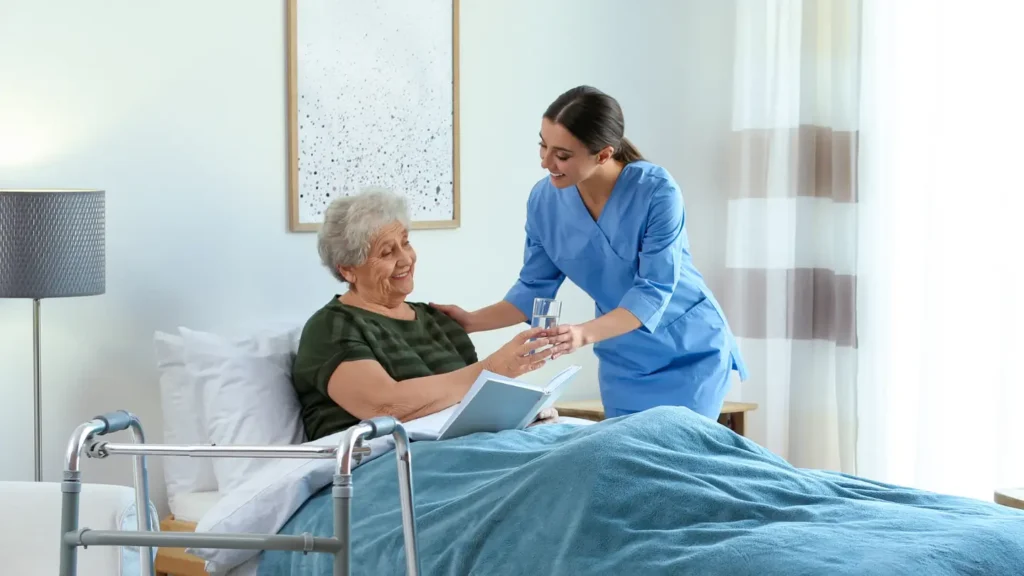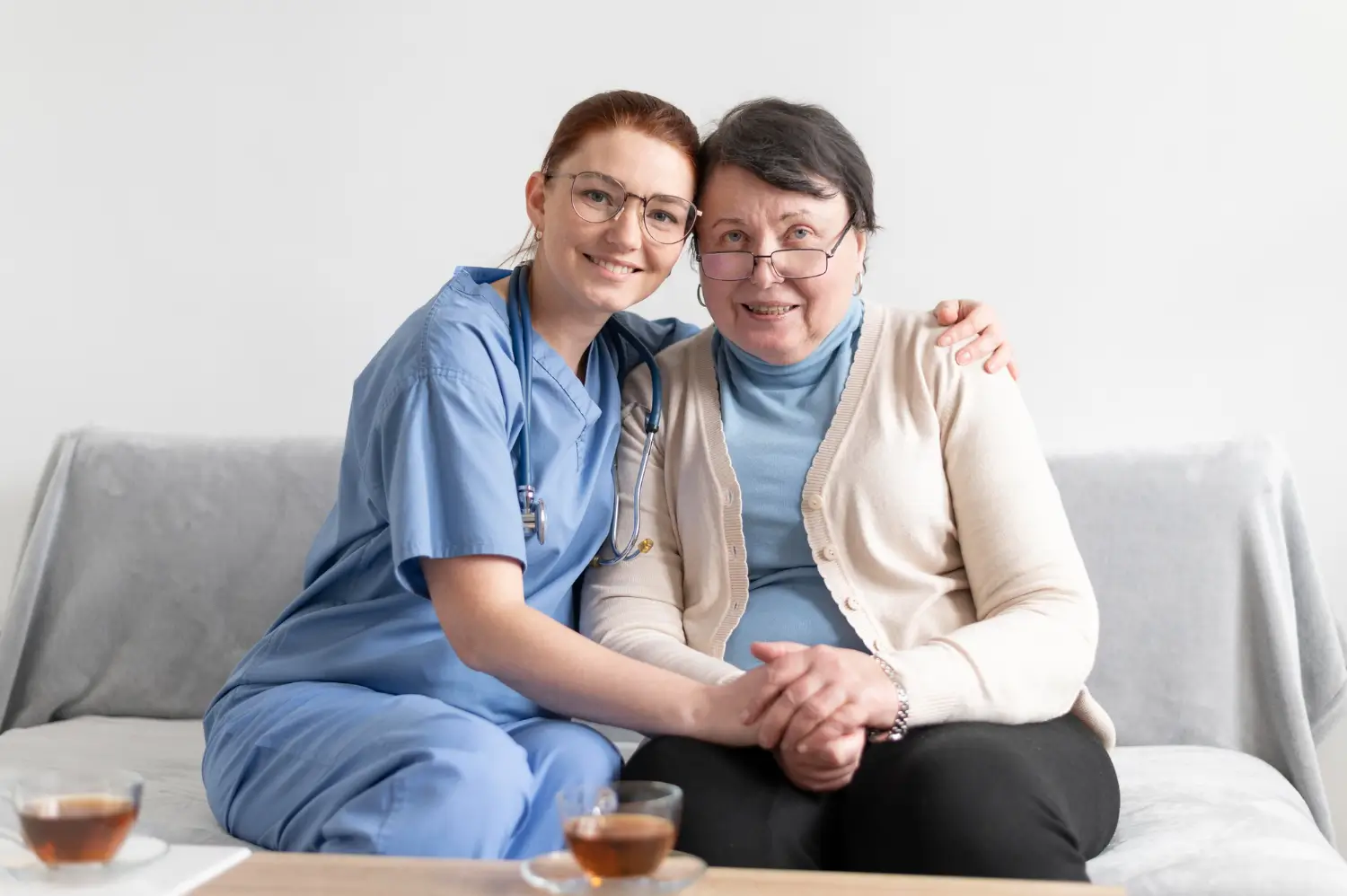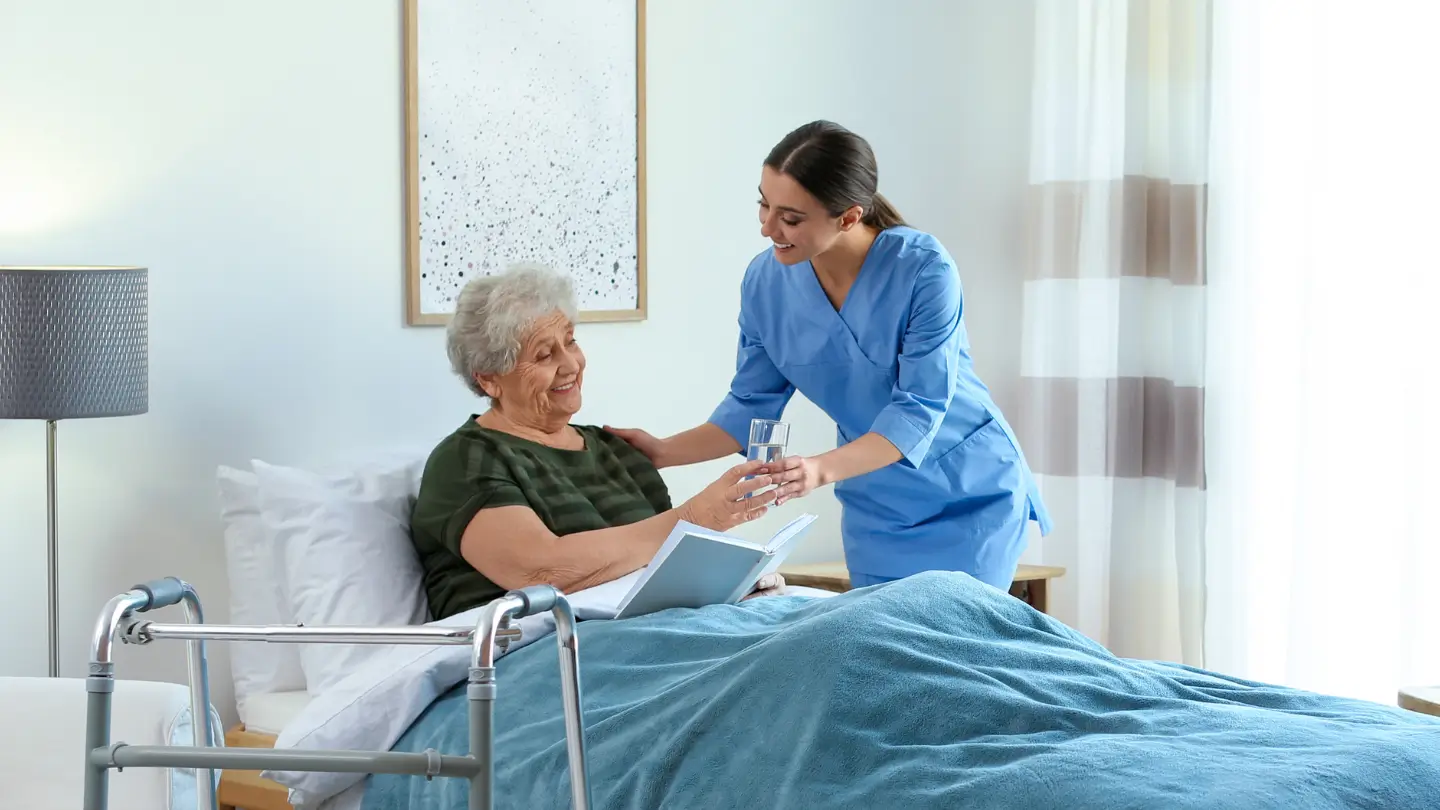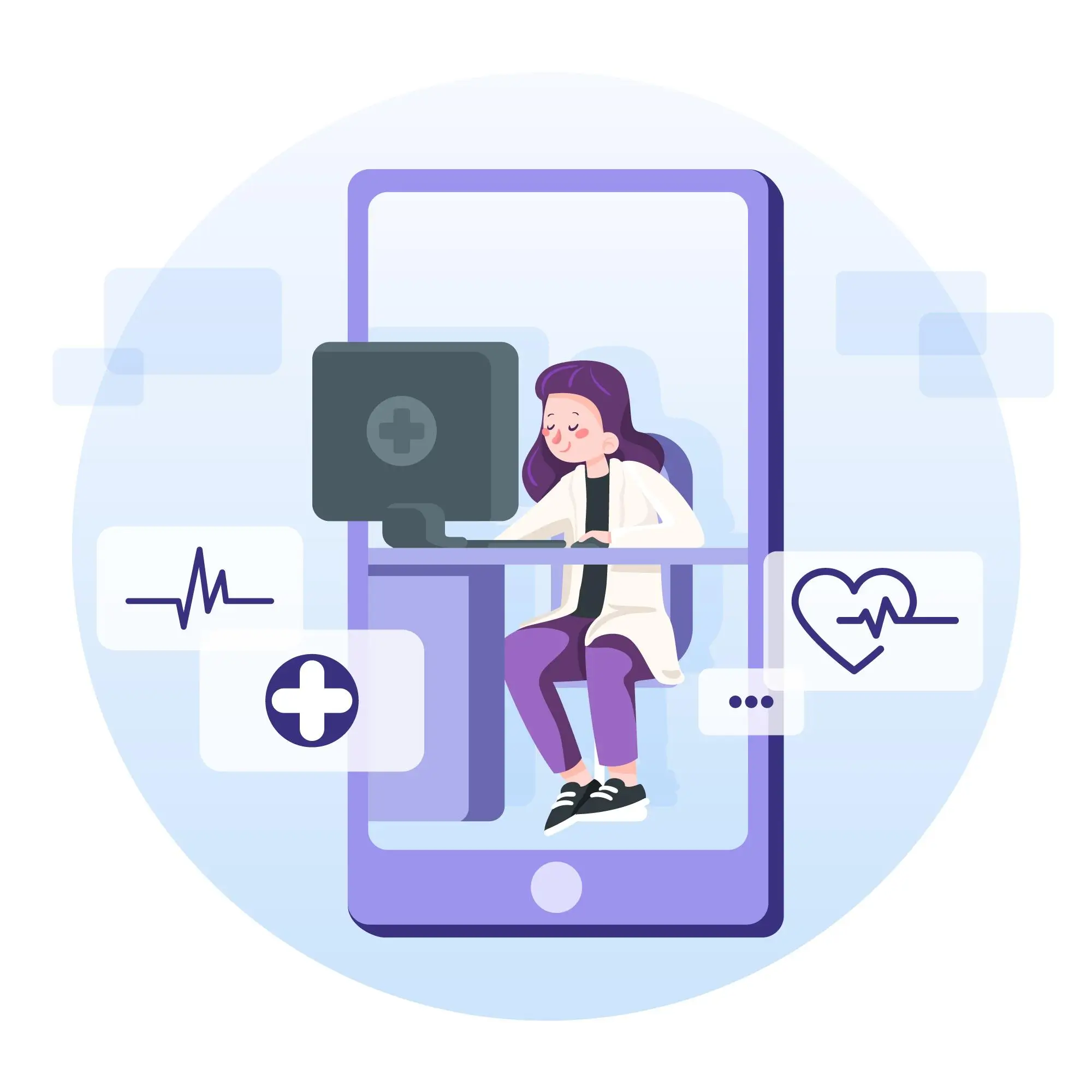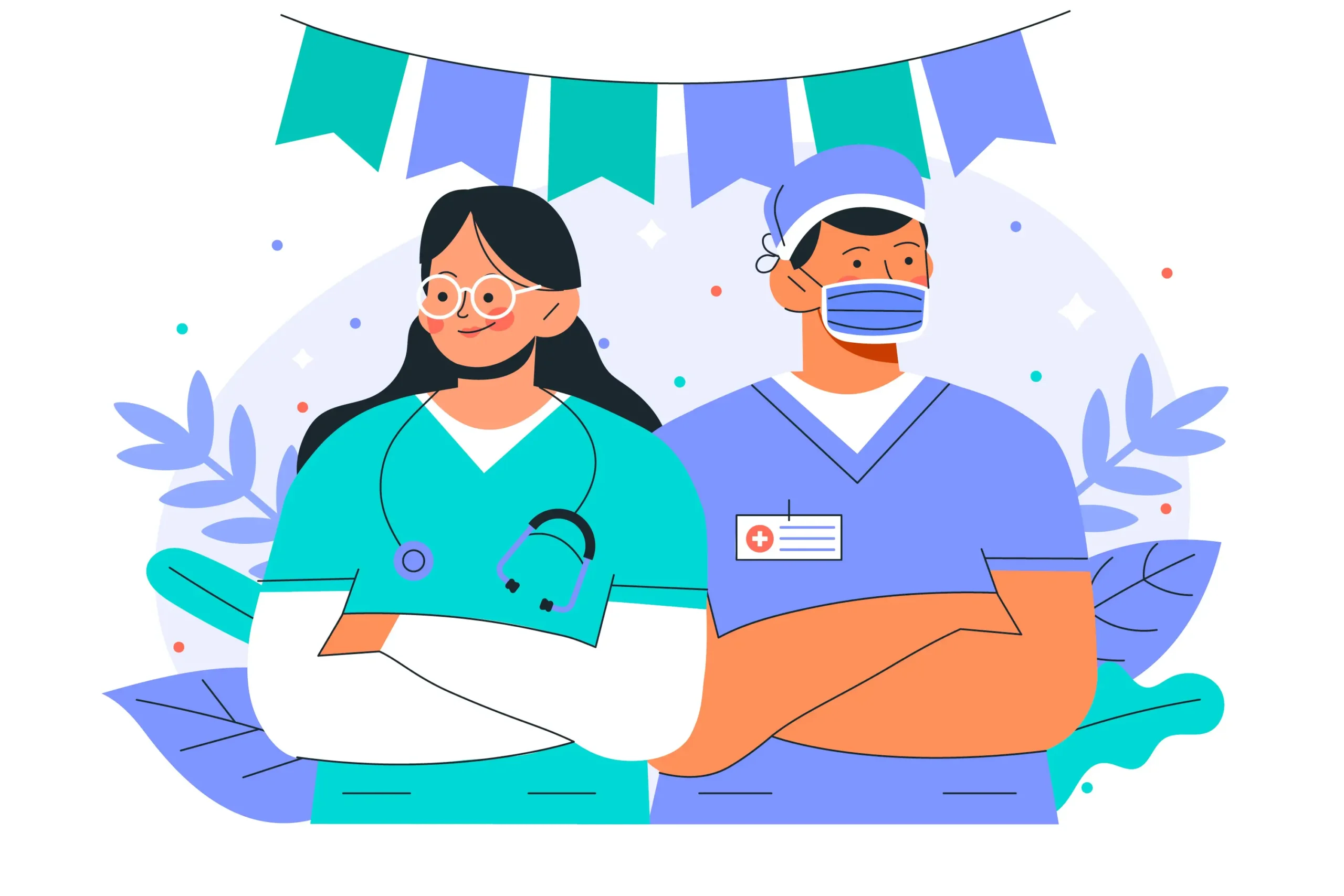Every day in the UK, around 6,000 people take on a new caring role. With an ageing population and mounting pressure on health and social care services, families and friends are stepping up in ways that often go unnoticed. This is where informal care comes into play—a vital but often invisible part of the care system.
Informal care refers to unpaid support provided by family, friends, or neighbours to individuals who are elderly, ill, or disabled. It fills crucial gaps left by formal care services and plays a growing role as healthcare systems strain under increased demand.
In this blog, you’ll learn what informal care really means, who provides it, why it matters, and how it’s shaping the future of care in our communities.
What Is Informal Care?
Informal care is unpaid support given by family, friends, or neighbours. It includes tasks like helping with meals, medication, or daily routines—usually at home.
You might already be an informal carer without realising it. Helping a parent, partner, or friend through illness or old age counts. What sets it apart is the personal connection. Unlike paid carers, informal carers step in out of love, loyalty, or necessity.
As health services face growing pressure, informal care is becoming more important than ever.
The Importance of Informal Care in Health and Social Care
In health and social care, informal care plays a big role. It supports people with long-term illnesses, disabilities, or age-related needs. This care happens outside hospitals or official care homes—mostly in private homes.
Often, informal care works side by side with formal services. For example, while a nurse might visit once a day, a family member handles everything else in between. That’s where informal care fills the gaps. It keeps the person safe, supported, and stable at home.
You don’t need training to provide this care. What matters most is being present and willing to help. In many cases, informal carers become the main source of daily support.
So, when we talk about health and social care, informal carers are part of the bigger picture. Without them, the whole system would struggle to cope.
However, if you’re looking to expand your knowledge in health and social care, consider deepening your understanding and skills through accredited programs like the Health and Social Care Level 3 Diploma. This course can help you formalize and improve your ability to support others effectively
Who is an informal carer?
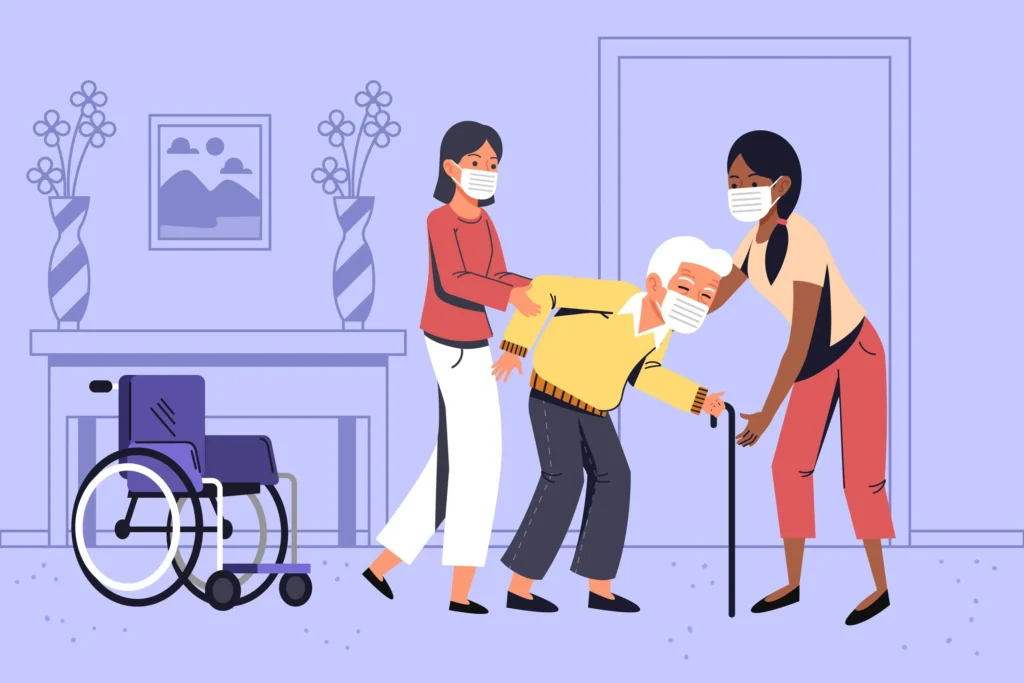
An informal carer is someone who supports a friend or family member without being paid. This could be due to illness, disability, or ageing. You don’t need special training—just the willingness to help.
Informal carers can be:
- Parents caring for a disabled child
- Adult children supporting elderly parents
- Spouses or partners of people with chronic conditions
- Young carers helping out at home from an early age
- Friends or neighbors stepping in when someone needs help
The Role of Informal Caregivers
Informal caregivers do more than just “help out.” They often take on full responsibility for someone’s daily needs. That includes physical, emotional, and even financial support. You might not have a title—but your role is vital.
Here’s what informal caregivers usually handle:
- Daily tasks – Cooking, cleaning, dressing, and helping with personal care.
- Health support – Giving medication, attending appointments, and managing conditions.
- Emotional care – Listening, encouraging, and being there when things get hard.
- Coordination – Talking to doctors, managing schedules, and sorting out paperwork.
You may also act as the main point of contact between the person you care for and the outside world. That’s a lot to take on. But without your support, many people wouldn’t cope as well—or at all.
Types of Informal Care
Informal care can be grouped into four main types. Each one supports different aspects of daily life and well-being. Many carers often provide a mix of these without even realising it.
1. Physical Care
This includes hands-on help with tasks like:
- Bathing and dressing
- Moving around
- Feeding and toileting
- Giving medication
It’s the kind of support many people need every day.
2. Emotional Care
Emotional support is just as vital. You might:
- Offer comfort during hard times
- Be a good listener
- Help someone manage stress or sadness
These small things can make a big difference.
3. Practical Care
This is about helping with day-to-day tasks, such as:
- Cooking and cleaning
- Shopping and errands
- Paying bills or managing appointments
It keeps the household running smoothly.
4. Social Care
Staying connected matters. Social care may include:
- Going for walks or outings
- Chatting and spending time together
- Helping them stay in touch with others
It supports mental health and reduces loneliness.
Informal vs Formal Care
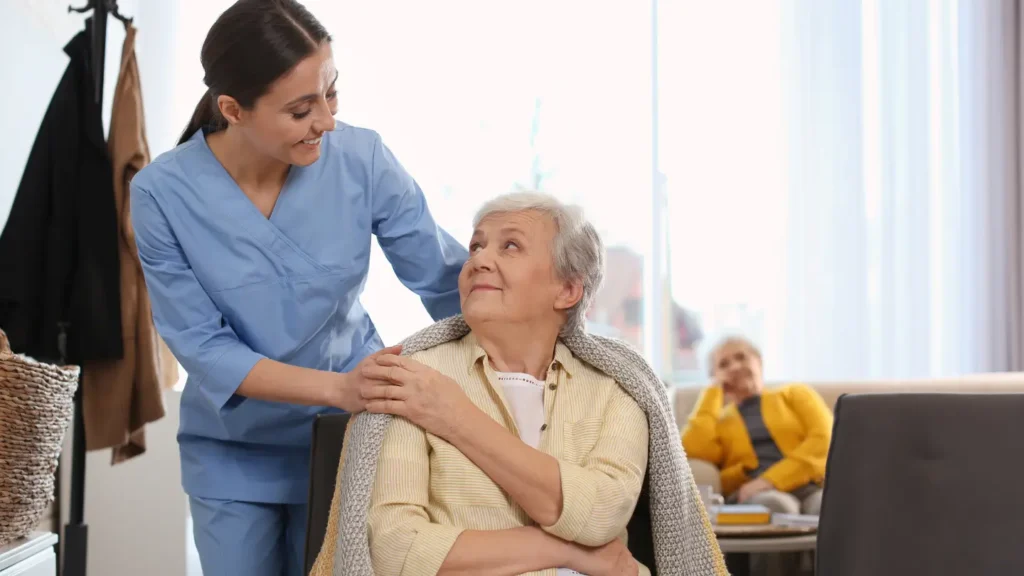
It’s easy to get confused between informal and formal care. Both aim to support people who need help, but they work in very different ways. Let’s break it down so you can see the difference clearly.
Informal care is unpaid and often done by someone close—like a family member or friend. It’s flexible and based on personal relationships. There’s no official training, but there’s usually a strong emotional connection.
Formal care is paid and usually provided by trained professionals. This includes nurses, social workers, or home carers. It follows strict rules, schedules, and care plans set by health or social care services.
Both types are important. In fact, they often work together to give complete care. But understanding the difference helps us value each one better.
Comparison Table: Informal vs Formal Care
Feature | Informal Care | Formal Care |
Who provides it? | Family, friends, neighbors | Trained professionals |
Is it paid? | No | Yes |
Training needed? | Usually none | Yes, specific qualifications |
Where it happens? | Mostly at home | At home, hospitals, or care centres |
Flexibility | High – based on personal needs | Fixed schedules and guidelines |
Emotional bond | Often strong | Usually professional and limited |
Support system | Relies on personal capacity | Backed by services and resources |
How Widespread Is Informal Care?
You might be wondering just how common informal care truly is. The reality is, it’s incredibly widespread, touching millions of lives globally. In fact, many experts suggest that most people will either provide or receive informal care at some point in their lives. This highlights its fundamental role in our societies.
In the UK, about 8% of the population—roughly 5.4 million people—provided informal care in 2023/24 according to the House of Commons Library. Women make up around 60% of these carers. Usually, carers are middle‑aged; the peak caring age is 55‑59 years: nearly 20% of women and about 13% of men in that group offer unpaid care.
Up to 120,000 young people aged under 18 cared for someone in England in 2021, around 1.4% of that age group. Many carers are employed too—over half of adult carers in 2022/23 had paid work, though this is lower than the general adult employment rate (51% vs 60%).
Summary Table: Informal Care by Demographics
Group | Share of Informal Carers |
Women vs Men | ~60% women, ~40% men |
Age group (55–59) | ~20% of women, ~13% of men |
Young carers (<18) | ~1.4% of under‑18s (≈120,000 in UK) |
Employment (carers ≥16) | ~51% in work vs ~60% of all adults |
Health risks (16–34) | ~2× more likely to report poor health |
The Essence of Informal Care in health and social care
Informal care plays a key role in keeping the care system running. It helps millions of people live safely at home without needing full-time professional help. This makes it not only essential—but cost-efficient too.
Here’s what makes informal care so valuable:
- Cost-efficient support – Informal carers save the UK economy an estimated £162 billion a year. That’s more than what’s spent on the entire NHS. Without this unpaid help, the system would be overwhelmed.
- Supplementing formal care – Informal care often fills the gaps between professional visits. You might remind someone to take meds or help them move around when staff aren’t there. This added support makes formal care more effective.
- Promoting comfort – Care from someone familiar can ease stress and fear. It brings emotional security that formal care often can’t. Many people simply feel better being cared for by someone they trust.
Advantages of informal care in health and social care
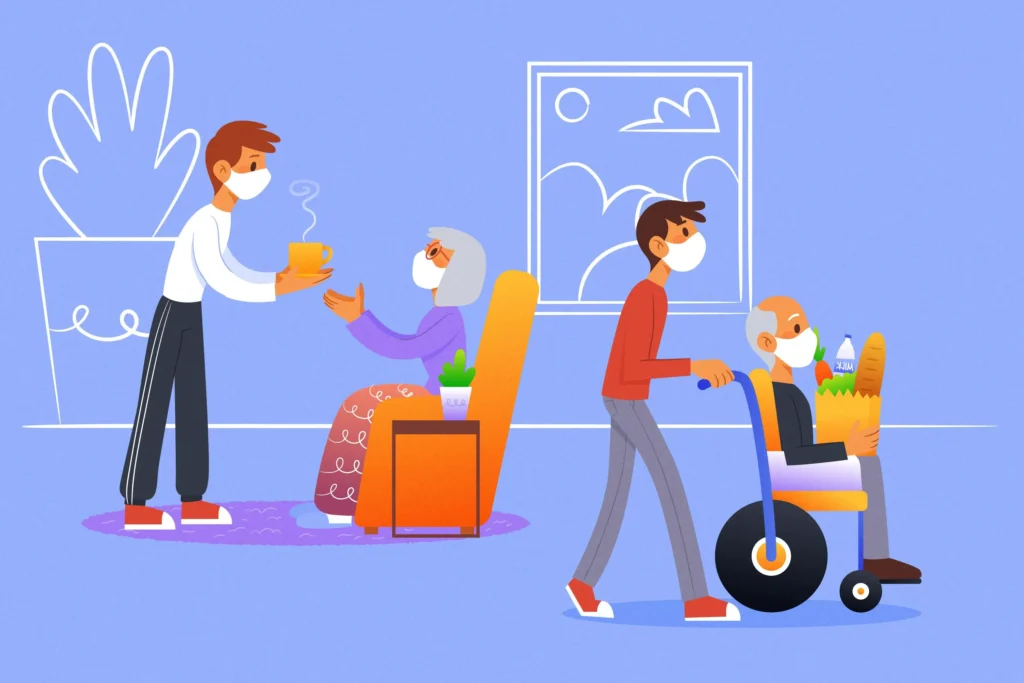
You might wonder why informal care matters so much. The truth is, it brings unique benefits that professional care simply can’t match. Let’s explore why this personal touch makes all the difference.
For Care Receivers:
- Familiar comfort: Being cared for at home reduces stress and confusion
- Personalized attention: Family knows preferences better than any professional
- Emotional security: Loved ones provide natural companionship
- Faster recovery: Patients often heal better in comfortable surroundings
For Families:
- Cost savings: Avoids expensive care home fees
- Peace of mind: Knowing your loved one is in good hands
- Stronger bonds: Caregiving deepens relationships
- Flexibility: Set routines that work for everyone
For Society:
- Reduces healthcare costs: Saves the NHS millions annually
- Eases system pressure: Frees up professional resources
- Community strength: Neighbors helping neighbors builds connections
- Cultural continuity: Maintains family care traditions
Of course, these benefits come with challenges too. Next, we’ll look at the other side of the coin – what makes informal care difficult.
Challenges Faced by Informal Caregivers
Being an informal carer can be deeply rewarding—but it’s also demanding. Many carers face stress, tiredness, and little recognition for the work they do. It often feels like you’re always “on call,” with no real break.
Here are some common challenges carers face:
- Physical strain – Lifting, moving, or helping someone daily can affect your health.
- Emotional stress – Watching someone struggle, especially a loved one, takes a toll.
- Lack of time – Juggling care with work or family life can feel overwhelming.
- Money worries – Many carers cut work hours or stop working altogether.
- Feeling alone – It’s easy to feel isolated, especially without the right support.
Despite the love and care you give, it’s okay to admit it’s hard. And that’s why getting help and support matters just as much as giving it.
Support for Informal Caregivers
Caring for someone else often means putting your own needs last. But to keep going, you need support too. Thankfully, there are options out there—though many carers don’t always know where to start.
Here’s some support you can look into:
- Carer’s Allowance – A benefit you may get if you care for someone at least 35 hours a week.
- Carer’s assessments – Local councils can assess your needs and offer tailored support.
- Respite care – Temporary care that gives you a break when you need it.
- Support groups – Talking with others in the same boat can help you feel less alone.
- Training and advice – Some organisations offer free resources to help you manage care better.
It’s not selfish to ask for help—it’s necessary. When you’re supported, the person you care for benefits too.
Conclusion
Informal care is the quiet backbone of health and social care. It’s built on love, trust, and everyday effort—from people just like you.
While the role can be tough, it also brings real value and meaning. With the right support, informal carers can continue making a difference without burning out. And that’s something we should all care about.
Health and Social Care Level 3 Diploma
Frequently Asked Questions
Informal care is unpaid support given by family, friends, or neighbours to someone who needs help due to age, illness, or disability. This type of care often happens at home and includes tasks like cooking, cleaning, emotional support, and personal care. Unlike professional carers, informal carers aren’t trained or paid—they step in out of love or duty.
There are four main types of informal care:
- Physical care – helping with mobility, hygiene, and medications.
- Emotional support – offering comfort, listening, and being present.
- Practical care – managing tasks like shopping, cooking, or bills.
- Social care – helping someone stay connected to others and avoid isolation.
The main purpose of informal care is to support someone’s daily needs in a familiar, comforting way. It allows people to stay in their own homes and maintain independence for as long as possible. It also helps reduce pressure on formal health and social care services by filling in gaps where professional support may be limited.
Informal care offers one-on-one support from someone the service user knows and trusts. This builds emotional security and helps create a stable daily routine. It also allows for more flexible, responsive care based on real-time needs—something formal systems may not always offer. In many cases, it improves quality of life and prevents hospital stays.
A formal care plan is a structured document created by health or social care professionals. It outlines the support a person will receive, including services, schedules, and care goals. An informal care plan, on the other hand, is often unspoken or loosely arranged. It’s based on what friends or family can provide and may change over time depending on need and availability.
Informal carers can access help through:
- Carer’s assessments from local councils
- Financial support, like Carer’s Allowance
- Respite care for breaks
- Local or online support groups
- Free training and advice from charities like Carers UK
Anyone can be an informal carer. This includes parents, children, siblings, partners, or even close friends and neighbours. You don’t need formal training or qualifications. If you regularly help someone with daily tasks or emotional support without pay, you’re considered an informal carer—even if you don’t call yourself one.
Yes, but not always enough. Many local councils and healthcare services now acknowledge the role of informal carers and offer support. However, informal care often goes unnoticed because it happens quietly, behind the scenes. That’s why awareness is growing around the need to better recognise, support, and include informal carers in care planning.
Caring can lead to physical and emotional stress, financial strain, and social isolation. Many carers struggle to balance care with work, school, or family life. Burnout is also common, especially when support is limited. That’s why it's important for carers to seek help and take time for themselves when they can.
Absolutely. In fact, that’s how many care plans work best. Formal carers might handle medical or complex tasks, while informal carers provide daily help and emotional support. When both types of care work together, the person receiving care gets more complete, well-rounded support. It’s about teamwork, not either-or.
Table of Contents

